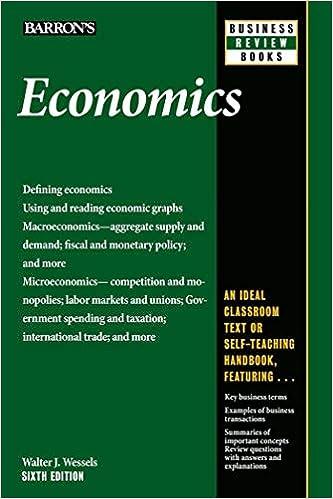Before 1975, professional baseball players had restrictive reserve clauses that required the team acquiring a players contract
Question:
Before 1975, professional baseball players had restrictive reserve clauses that required the team acquiring a player’s contract to pay a large sum to the owner of the team losing the player (this sum had to be large enough to compensate owners for their loss).
a. Suppose a player had an MRP of $500,000 annually but was being paid only $100,000. How did the system keep a player from getting what he was worth? Which case does this reflect?
b. After 1975, players (with a certain level of seniority) could become free agents, selling their services to the highest bidder.
What would this do to this player’s wage (assuming he is worth
$500,000 to all teams)? Will this bankrupt baseball?
Fantastic news! We've Found the answer you've been seeking!
Step by Step Answer:
Related Book For 

Question Posted:





